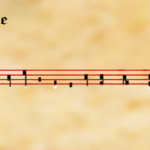It was a little over a year ago that a lady around these parts had declared herself to be Long Island’s First Female Catholic Priest and managed to be kind of off-putting about it.
Her vanity hits the nadir when she refuses to disclose her age. She wants to pastor the people, and gather them in, or something…but she will not give enough of herself, be open enough with herself, to even tell them her age.
Ain’t she priestly, though? Really pastoral! Just like Francis!
Today we read of another woman, this time in Austria, who calls herself a “priest” Her story is a little fuller, as she has been in turn a nun, a wife, a divorcee, a “priest” and now she wears the ring of a “bishop.”
In 2002, Mayr-Lumetzberger and six other devout Catholic women chose to flout what they saw as a stifling blanket ban. “I had felt called by God to priesthood since I was a small child,” she says simply, “and I wanted to be a priest before I died. If I waited for the male priesthood to allow that, it would be impossible.”
Rather than collect petitions, or carry on arguing their theological case, they felt driven thy [sic] had no option left other than to take direct action. They were ordained by an Argentinian Catholic bishop, Antonio Braschi […]
Rome’s reaction was predictably icy. They received an order to recant. What else had Mayr-Lumetzberger expected? “They might have wanted to talk to us, listen to why we did what we did”.
She’s certainly an optimist, but is she also a natural rebel? “Me, no.” She laughs at the thought. “I’d rather be seen as a prophet. I’m doing the right thing, only a little bit too early.” There is steel behind the benign exterior. […]She then took defiance to a new level and was consecrated as a bishop by “more than one bishop who was in good standing with Rome. It was their idea not mine.”
She has always refused to name the male bishops involved in case they suffer the Vatican’s wrath for exceeding their authority. Her reticence undeniably weakens her case, but it also points to the grit in her story. With excommunication, her protest should have petered out, but it hasn’t. Instead, others from within the church, including bishops, have lined up to egg her on to even greater defiance. “Most Catholic priests in Austria,” she says, “are very nice to me. They call me ‘Mrs Bishop’. And they show me respect”.
Let’s leave aside all of the giddy “yes I was ordained and then made a bishop by the super-coolest of the cool bishops” anti-establishment boring-ese bits — and also the question as to whether she is being used as a handy stooge by bishops too cowardly to proclaim themselves (because sneaking about is so very Holy) and be forced from their powerful positions. Here’s what jumped out at me:
“I had felt called by God to priesthood since I was a small child,” she says simply, “and I wanted to be a priest before I died.”
That’s four I’s in two sentences, and not a “Jesus” in sight, in the whole long piece, except as necessary to provide the vaguest of explanations for our teaching on ordination.
Once again, as with the lady from Long Island, there is a great deal of pride and self-reference in all of this. Beyond that, the idea that “I felt called and wanted this before I died, because I am a prophet” makes her theology terribly suspect.
She calls herself “a prophet” but prophets generally don’t want any part of whatever it is they’re being called to. If they eventually find joy in their obedience, their first response is usually, “oh, hell no.”
Theologically, she is missing the whole idea — the Christ-promulgated idea — that you can’t always get what you want, but (if you try sometimes, though obedience is hard) you get what you need.
I am thinking of Moses, reluctantly leading the Hebrews out of Egypt and through the desert, only to be denied the Promised Land.
I am thinking of Saint Gemma Galgani, who certainly felt “called” to become a Passionist nun yet never made it into the convent. Rather, when it became clear that what she was being offered a calling of unquenchable thirst, she discovered her consolation in the self-abnegation into which she had been invited; the calling-within-a-calling, so to speak: desire without consummation, except as Christ consumes. “Not my will, but Thine.”
Her calling, in other words, was not to the cloister, as she fervently believed and desired, but to the very Cross, with Christ, and with suffering, too. Because reluctant prophets and those who answer the call to “pick up your Cross and follow me” always do suffer with him, in the end.
We Catholics don’t really teach this theology very well, anymore. We barely recognize Christ’s own articulated doctrine as doctrine, and all those invitations to surrender — to relinquish control and consent to the efficacy of “no” as a tool for rendering a deeper “yes” — are barely held up as contrast to the easier, more popular theology of the world.
That would be the Theology of “but of course you may!” If you really, really want something, then of course you should have it exactly as you like, because you’re just such a mumsy-wumsy-wussa-wussa-musha, yes you are! Yes, you are! And Daddy wuvs you!”
We no longer seem to know how to teach the Cross, or the truth that meeting Jesus upon it is the source of restoration, holiness, freedom and true power.
I’m not buying what “Mrs. Bishop” is selling. Theologically, it is rather shallow — it wades through modern sensibilities and declares itself to be plumbing the depths.
This is, again, why I am so glad for Eve Tushnet’s absolutely vital book, which looks beyond “yes, you should have just what you want” to hear a deeper, bolder invitation: “come explore the mystery of the gift I have for you, which is — surprise, surprise — not what the world tells you it should be.”
One reason prophets are without honor in their own homes is because they dare us away from what we want, which is always the easier, and worldlier (thus emptier) way.
Or, as Simcha Fisher so perfectly puts it, here:
[Prophets and seminarians] may certainly feel called, but they do not feel worthy — and they do not expect to slither comfortably into their vocations…
We start with our unworthiness, and we proceed to God’s mercy. That is the only path. There is no other path.
Related:
Pope Francis: Hearing God’s voice is hard if you’re self-absorbed
We are all called and the work of our priesthood is already before us.












